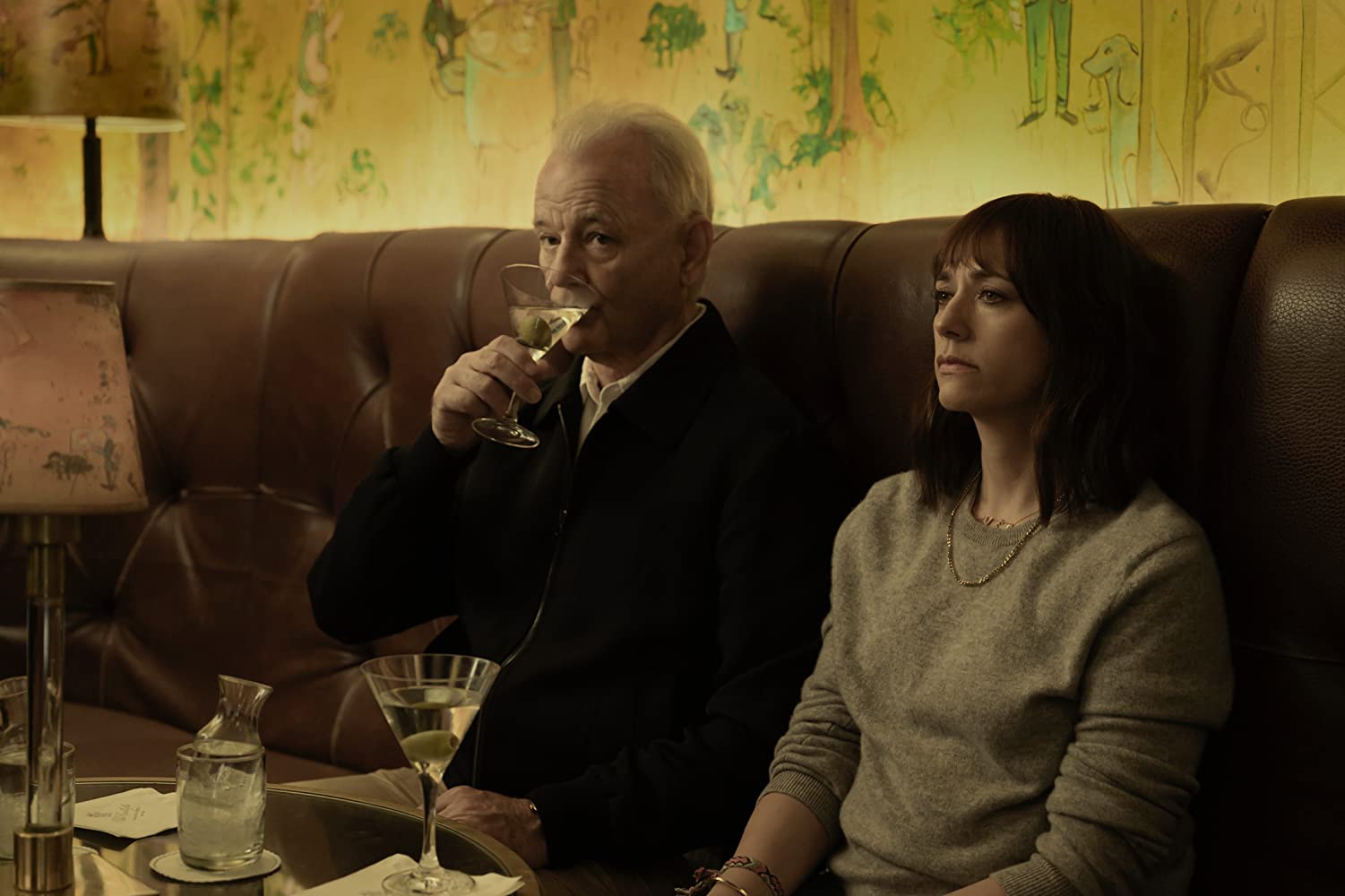Sofia Coppola’s On the Rocks may only be a follow-up to Lost in Translation in spirit, but the connection between the movies runs deep. When Coppola was workshopping her script for Lost in Translation, she had an acting student read the part that would eventually go to Scarlett Johansson. That acting student? Rashida Jones, who plays the lead role in On the Rocks. Maybe it’s fate; maybe it’s multiple levels of nepotism.
Whatever the case, the things that parents pass on to their children—wanted or not—is on the mind of Coppola’s latest. On the Rocks follows Laura (Rashida Jones), a beleaguered mother who suspects her husband of cheating when his post-business trip behavior takes a turn for the strange. At first the suspicion merely intensifies her writer’s block, but it begins to border on paranoia. After discovering that her husband’s business partner is Game of Thrones’ Jessica Henwick (a major blow to any marriage), Laura voices her concerns to her father (Bill Murray), an incorrigible womanizer who compensates for his bad advice by showing up at his daughter’s door. Before long, he’s convinced Laura to help him tail her husband for a night. You don’t get to be an aging playboy without a gift for smooth-talking.
Much has already been made of Murray’s performance, which is richly detailed both in a personal, performative sense and as a metacommentary on Murray’s star persona. But the buried lede is how impressive Rashida Jones is. She’s had the criticism “they’re the same in everything” lobbed at her, but like her similarly accused former co-star Jesse Eisenberg, she’s being sold short. Jones excels at a general-purpose naturalism that makes her feel like the realest person in the room—a sort of anchor to reality that’s essential for reality-adjacent affairs like Parks and Recreation. In the hands of Sofia Coppola, a director whose work straddles the line between real life and life as it plays out in the protagonist’s head, she’s the perfect muse. Jones balances the film’s more extraordinary events with the subtle hesitancy of ordinary reactions, which gives her rare emotional outbursts all the more weight. Coppola brings out some of Murray’s best work, no doubt, but it’s Jones’ face on which you can read the script’s emotional beats.
For much of the movie, what’s written on her face is some variation of fatigue. Laura’s in a very Lost in Translation-esque rut: life has settled into a groove that she’s not sure she wants to stay in, and with the added stressors of kids, work, and a strained marriage, she has no time to consider what a step outside the norm could be, even despite her inexplicable wealth (write what you know, person whose last name is Coppola!). Laura’s father Felix, on the other hand, seems to have made it through his Lost in Translation phase through sheer denial. He floats by on charisma and lack of commitment, adapting his views to whatever renders him innocent so that he never has to change. His treatment of women is a fundamental part of that selfishness. Coppola writes Felix as the kind of misogynist who can’t be explained away by “old ways of thinking”: his dialogue illustrates an effort to update sexism for modern times, pinning vile stereotypes on, for example, the intractable truths of human evolution. It’s a far more interesting and explorable character malady than Murray’s racism in Lost in Translation, which tended to spill over the edges of the character and into the movie’s disposition.
Coppola’s quiet, night-before-dawn aesthetic—all lonesome lights and muted music—brings a real sense of longing to Laura and Felix’s moonlit misadventures, like insomniacs wandering through their dark nights of the soul. The light at the end of the tunnel for Laura, who doesn’t know what she wants, and perhaps for Felix, who’s decided to never stop getting what he wants, is satisfaction with what they already have. It’s too easy a solution to their problems, but the film signals from early on that that’s where it’s going. The mystery of Coppola’s bleary-eyed setting holds out hope for something less obvious, like an unheard whisper at a final departure, but On the Rocks slots into its announced destination like a roller coaster tepidly approaching its one and only stop. Its final metaphor is too naked in its meaning to provoke the discussions that kept Lost in Translation alive in the popular consciousness.
Is the movie worth the risk of a pathogen-addled theater? No, it’s not; no one’s work is, not even a Coppola’s. But On the Rocks is a both an A24 and an Apple Original Films release, so it’ll be streaming on Apple TV+ starting October 23rd.
★★★½ (3.5/5)




